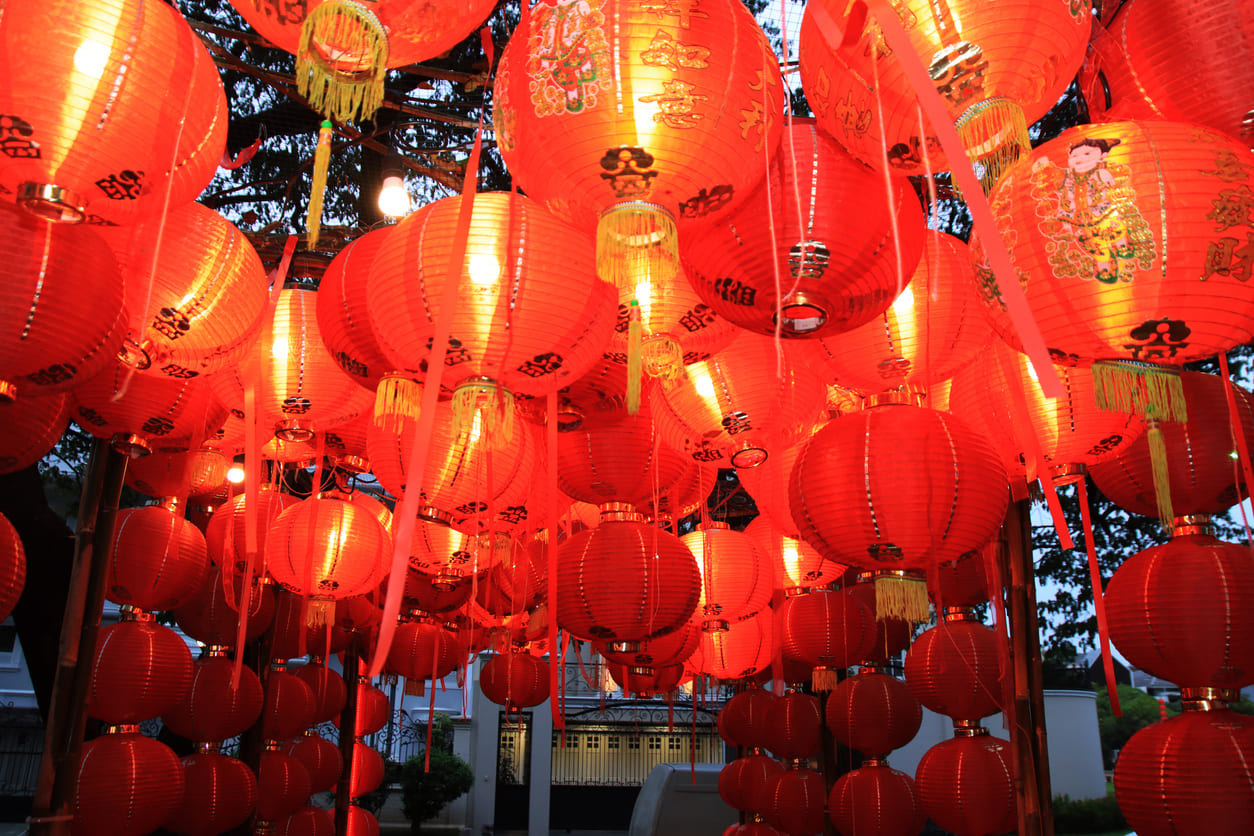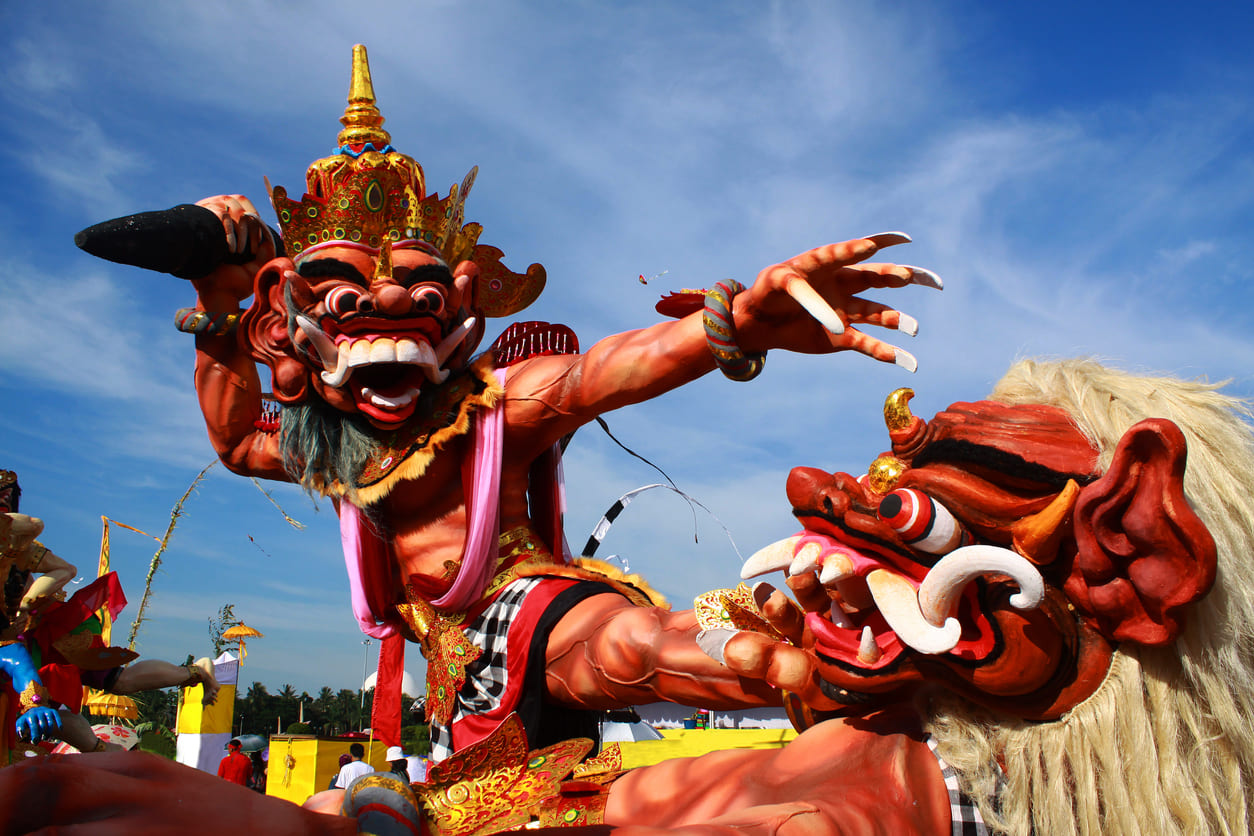Dates of Chinese New Year's Day in Indonesia
| 2026 | Feb 16 - Feb 17 |
| 2025 | Jan 28 - Jan 29 |
| 2024 | Feb 9 - Feb 10 |
Indonesia Holiday Calendars
Chinese New Year's Day, known locally as Imlek, is celebrated by Chinese Indonesians with family gatherings, festive meals, and cultural traditions. The day is marked with the giving of red envelopes, prayers at temples, and vibrant lion and dragon dance performances.
Chinese New Year's Day: A Public Holiday?
Chinese New Year's Day is a national public holiday in Indonesia, with government offices, schools, and most businesses closed as communities celebrate.
The holiday is occasionally extended with additional days of Collective Leave (Cuti Bersama), a government-designated leave deducted from public servants' overall entitlement. Many businesses follow this practice, adjusting employees' annual leave to align with official government guidelines.

Chinese New Year's Day
Chinese New Year's Day, also known as Imlek, has a long and rich history in Indonesia. The festival arrived with Chinese immigrants, many of whom settled in trading ports across Java, Sumatra, and Kalimantan centuries ago. The celebration follows the Chinese lunar calendar, with the New Year falling on the first day of the first month. Over time, the festival became an integral part of Indonesia's cultural landscape, blending Chinese traditions with local customs. Despite its deep roots, Imlek was not always openly celebrated. During the New Order era, public displays of Chinese culture were restricted, and Chinese New Year was not recognized as a national holiday.
This changed in the early 2000s, when Indonesia embraced greater cultural diversity and freedom of expression. In 2003, Chinese New Year's Day was officially declared a national public holiday. Today, the festival is a vibrant and widely respected event. It symbolizes Indonesia's commitment to multicultural harmony and honors the contributions of Chinese Indonesians to the nation's social and cultural fabric.
Observance of Chinese New Year's Day in Indonesia
Chinese New Year's Day is celebrated with great enthusiasm in Indonesia, particularly in cities with significant Chinese communities. Preparations begin days in advance, with homes decorated in red and gold, symbolizing good fortune and happiness. The date of the celebration, determined by the Chinese calendar, varies each year but always brings a spirit of renewal. On New Year's Eve, families gather for a reunion dinner, sharing special dishes that carry symbolic meanings for prosperity and health. The exchange of angpao (red envelopes filled with money) is a cherished tradition, symbolizing blessings for the year ahead.
Many visit temples to pray and offer incense on the day itself, seeking good fortune for the coming year. Public celebrations often feature lion and dragon dances, fireworks, and cultural performances. The festive atmosphere extends into the streets, drawing participation from diverse communities. Shops and malls also join in with elaborate decorations and special events, adding to the joyful mood.
Beyond its festive appeal, Chinese New Year's Day holds deep cultural importance in Indonesia. It strengthens family bonds, encourages acts of kindness, and fosters a spirit of gratitude and renewal. The festival, rooted in the Chinese calendar, also reflects Indonesia's respect for cultural diversity, promoting understanding and unity among its many ethnic and religious groups. Today, Chinese New Year's Day serves as a vibrant celebration of both heritage and harmony in modern Indonesian society.
Chinese New Year's Day Observances
| Year | Date | Weekday | Name | Holiday Type |
|---|---|---|---|---|
| 2024 | Feb 9 | Fri | Chinese New Year Holiday | Collective Leave |
| Feb 10 | Sat | Chinese New Year's Day | Public Holiday | |
| 2025 | Jan 28 | Tue | Chinese New Year Holiday | Collective Leave |
| Jan 29 | Wed | Chinese New Year's Day | Public Holiday | |
| 2026 | Feb 16 | Mon | Chinese New Year Holiday | Collective Leave |
| Feb 17 | Tue | Chinese New Year's Day | Public Holiday |



